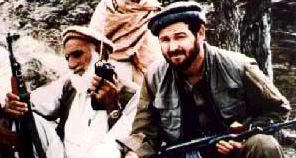US Pouts Over Potential Crimea Spillover While Russia Enters P5+1 Talks With Optimism
Alissa Rubin today has two separate articles in the New York Times that parrot US misgivings ahead of today’s round of talks between the P5+1 group of countries and Iran. In the article that went up first, Rubin offers anonymity to a “senior American official” to do some hand-wringing over how Russia’s move toward full annexation of Crimea could disrupt US-Russian relations to the point that the P5+1 negotiations could be thrown off track:
Tensions between the West and Russia over events in Ukraine have cast a shadow over the second round of talks set to begin on Tuesday in Vienna on a permanent nuclear agreement with Iran.
/snip/
A senior American official, speaking before the Iran talks and just before the secession vote in Crimea on Sunday that overwhelmingly approved reunification with Russia, indicated concern about possible consequences from the friction over Ukraine. Since western nations consider that vote illegal and have warned President Vladimir V. Putin of Russia not to annex Crimea, the situation for the Iran talks would now seem more worrisome.
“I think that we all hope that the incredibly difficult situation in Ukraine will not create issues for this negotiation,” said the official, speaking on the condition of anonymity because of the sensitivity of the talks.
“We hope that whatever happens in the days ahead, whatever actions we and the international community take, depending upon the decisions and the choices that Russia makes, that any actions that Russia subsequently takes will not put these negotiations at risk,” the official said.
Rubin allows this “official” to frame the situation as only dire while completely ignoring that significant and rapid progress was made on the negotiations for Syria to abandon its chemical weapon stockpile while the US and Russia were on completely opposite sides of the Syrian conflict. In the current case, while Russia is more closely aligned to Iran than the rest of the P5+1, their differences with the group on general issues of nuclear proliferation are much smaller than the differences between the US and Russia in the Syrian conflict. So why is Crimea a barrier to talks with Iran when being on opposite sides of the Syrian conflict wasn’t a barrier to an agreement on chemical weapon destruction?
Even when Rubin moves on to her article relating Iran’s interest in seeing the talks progress, she can’t resist opening with a repeat of the concerns of a spillover of Crimean tensions:
As talks on a permanent nuclear agreement with Iran resumed in Vienna on Tuesday, under the shadow of tensions between the West and Russia, Iran said the onus to ensure progress was on the world powers with which it is negotiating.
“Important and tough discussions ahead today,” Iran’s foreign minister, Mohammad Javad Zarif, said on Twitter. “We have held our end of the bargain. Time for our counterparts to keep theirs.”
The article then goes on to repeat many of the same paragraphs from the original, including the senior American official quotes, although it does mention in passing that EU negotiator Catherine Ashton and Zarif held a brief meeting prior to the main negotiations opening this morning.
Contrast that with the reporting in the Iranian press. PressTV reports that Russia is in fact optimistic about the talks: Read more →

![[Source: Google Trends and Google Finance]](http://www.emptywheel.net/wp-content/uploads/2014/03/Trend_Ukraine-Venezuela_Petro-Gas_02MAR2014-e1393824251507.jpg)
